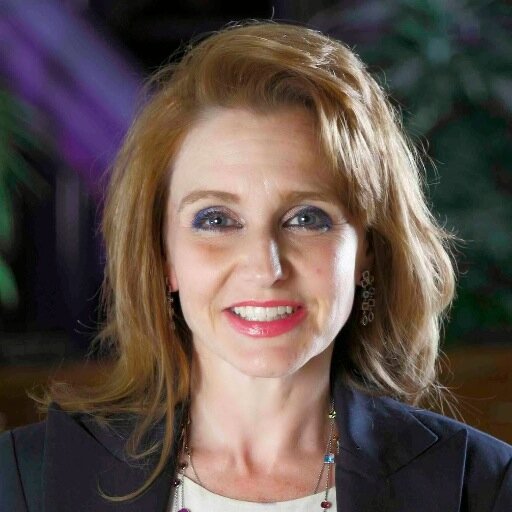Felicia Knaul is a force. Upon meeting her, the warmth in her laugh and her enthusiasm for things as simple as a walk around Lake Osceola are not what one would expect from the University of Miami’s economist-tenured professor-author-activist-humanitarian first lady. Knaul speaks with a passionate eloquence about her projects. She is easy to admire.
Unlike other prominent figures, however, Knaul is refreshingly real. She acknowledges her flaws because she knows her power comes from a different place – a deeper layer that Knaul dived into when she was diagnosed with invasive stage II breast cancer in 2007.
She had to adjust to a new self after having a mastectomy. In her first interview after her diagnosis, Knaul was asked what she saw when she looked in the mirror. It was a difficult question to consider, she said, but one she thoughtfully approached nonetheless.
“As I thought about it, I actually realized that I liked seeing myself in the mirror, mastectomized, more or better than before because I felt very proud of what I had been able to go through, still standing on two feet,” Knaul said.
Breast cancer is not like other types of cancer because of its association with a symbolic and sexualized part of women’s bodies, according to Knaul and her husband, President Julio Frenk.
Both the president and first lady have done extensive work in health systems in their part-time locale of Mexico. Frenk was the minister of health for the country and rolled out the Seguro Popular health care program before moving to Boston to serve as the dean of public health at Harvard University.
Knaul founded Tómatelo a Pecho, a non-governmental organization founded to educate women and men about breast cancer treatment and early detection, to reduce stigma surrounding breast cancer and to increase access to care and screening.
Once Knaul was diagnosed, she chose to have the majority of her treatment in Mexico, using the health systems she and Frenk had studied for years.
“The understanding of struggling with access in a health system when you know you need that care to live is very different than writing about it. You go from sympathizing to empathizing,” she said.
In their travels to Mexico, Frenk and Knaul met women who avoided getting mammograms over the fear that their partners would leave them. Frenk recounted a woman who said she thought her partner would think of her as “less of a woman.”
That was when Frenk began taking a different angle on breast cancer, one focusing on the deleterious consequences of stigma, shame and the objectification of women in connection with breast cancer.
“Independent of other functions or symbolisms that that particular part of the body may have, a woman is a comprehensive human being and we need to treat her as such,” Frenk said. “If she has a mastectomy, that doesn’t make her less of a woman or less beautiful or less interesting or less attractive in any sense.”
Although much of their work has been centered in Mexico, both Frenk and Knaul noted that the abandonment of women with breast cancer is not exclusive to one group of people. The “societal cancer,” as Frenk referred to it, of machismo is aggressive and invasive.
“I had not thought it was such a deep phenomenon. And by the way, it was not just poor women, I learned about a couple of prominent cases of very wealthy men who actually walked out on their wives because they were diagnosed with breast cancer,” Frenk said.
When talking about breast cancer, it is natural to gravitate toward the suffering. However, Knaul believes in taking that pain and transforming it into empowerment based on a woman’s inherent worth, especially in a city as influenced by appearances as Miami.
“How can we use that to be able to empower women and get further along in what it means to accept ourselves for what we are? And, frankly, in the Miami and South Florida community this is very important. There is a huge focus on how we look and we do need to get, I think, beyond that in many ways, but also empowered,” she said.
Knaul founded Tómatelo a Pecho to serve that very purpose. Now, she is collaborating with Sylvester Comprehensive Cancer Center to launch a similar program in South Florida that opens access to breast cancer care and screening to the migrant population, many of whom are undocumented workers.
She has met with small groups of women in Homestead and is in the beginning stages of collaborating with an association for agricultural workers to design and implement community health worker intervention and measure its effect.
On a microcosmic level, the power of a single voice — a woman admitting she is afraid of being alone in the maelstrom of breast cancer, a man telling his ill wife she is the same woman he fell in love with, an activist sharing information on early detection — continues to be an influential part of every project Knaul and Frenk take part in and will be what ends the prejudice against women with breast cancer, according to Frenk.
“I think, mostly by virtue of women being courageous and talking about this, there has been progress, but there is still a lot of work to be done in combatting these dehumanizing, stigmatizing attitudes that are associated with machismo and sexism,” Frenk said.






